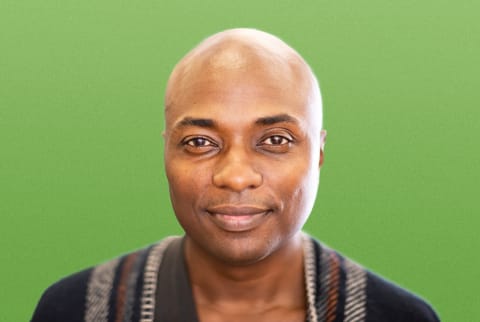Advertisement
The Real Reason We Judge Others Without Knowing It + How To Exit The Cycle


It's no secret that judgment is deeply embedded in us as human beings. Think about it: We judge ourselves—our thoughts, appearances, and feelings (and then we judge ourselves for having those feelings). We judge others—their decisions, experiences, and backgrounds. We're constantly analyzing and criticizing every action to make sense of the world.
This judgment is perhaps at the heart of our systemically racist society. According to sixth-generation shaman and author of Spirit Hacking Shaman Durek (who is also the star of mbg's first original documentary, HEALERS), we typically attach moral values on our judgments of others, perpetuating harsh binaries that have become so ingrained in our culture. "Judgment makes you blind," he says. "You'll never see me, know me, because all you see is what your brain is telling you to see based on the world."
Judgment is pervasive in our society, but that's not to say we can't do anything about it. According to Durek, the real reason we judge others is simpler than we think, and it just requires a bit more work and intention to free ourselves from the vicious cycle.
Why we judge others.
According to Durek, judgment is simply a reaction to fear. "Judgment is your protection mechanism," he says. "So you don't have to engage with the unknown." When we don't have enough information about someone, our inherent instinct is to fear them rather than striving to learn about them and their background.
It's not because we have ill intentions, per se. Rather, he says this aversion to the unknown has been pervasive in our culture for—well—forever: "We act this way because we haven't been taught emotional intelligence in our upbringing, our schools, and our institutions," Durek explains, "so we don't engage as a culture with things we are afraid of or learn from people we don't understand."
What can we do?
It's going to take conscious action to go against deep-rooted judgmental instincts. The first step: Educate yourself. Learn what resources you have available, Durek says, and don't be afraid to ask questions. (After all, that fear is what propels us into judgment in the first place). "We have to engage the conversation through education and asking people about their culture," he continues.
After we commit to education, Durek says the next step is to "get out of the idea of shaming, blaming, and naming." In other words, removing any shame associated with a genuine learning journey.
The system, according to Durek, is designed to keep us divided, pitted against each other, in order to keep marginalized groups in oppression. That's why it's so important to band together. It's how we can rise above the system itself. "Let's turn our anger into fuel to propel ourselves into creating real change, so we can thrive and be done with this," Durek says.
The bottom line? In order to truly free ourselves from judgment, we need to approach the unknown with genuine curiosity, not fear. We must become comfortable asking people about their culture, and we shouldn't perpetuate shame and blame. Our inherently racist system thrives on those good versus bad binaries. But as Durek notes, "We are intelligent enough to hold on to love, no matter what we see or hear."











